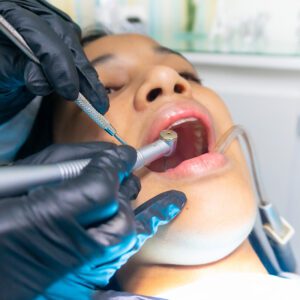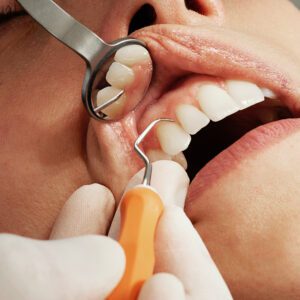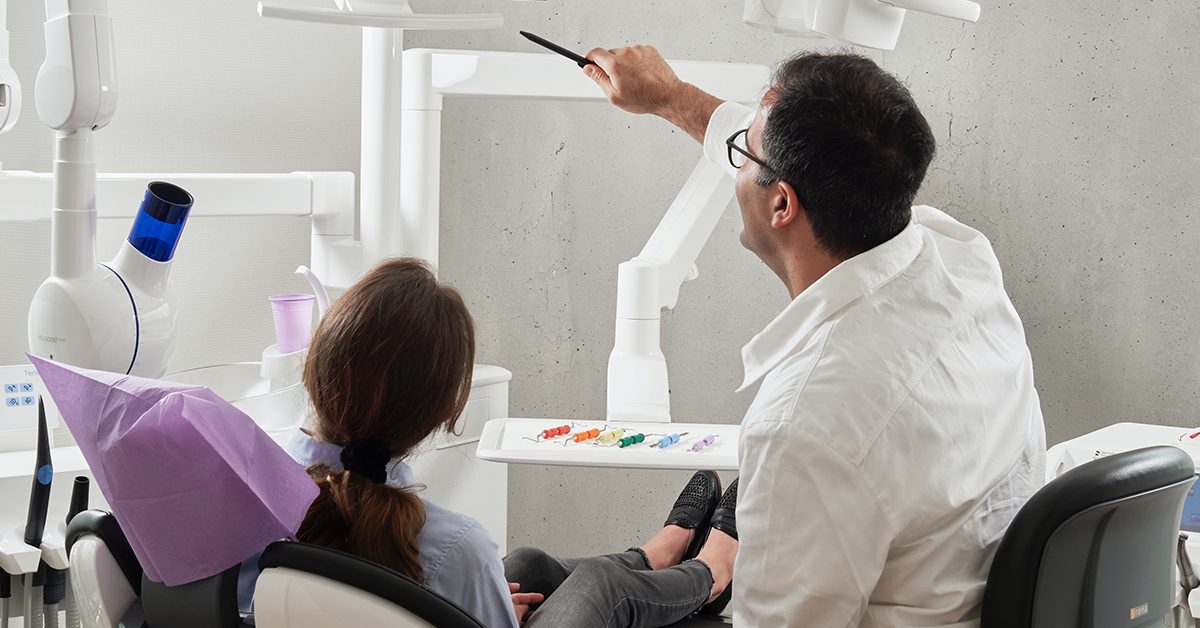n the United States, there are about 53,000 new cases of oral cancer, or three percent of all cancer recorded yearly. In 2016, the Centers for Disease Control for Prevention (CDC) identified 47,813 new cases of Oral Cavity and Pharynx cancer, of which 10,492 died. However, this type of cancer has a high survival rate, especially when diagnosed in the early stages.
In line with the celebration of Oral Cancer Awareness Month this April, Advanced Indiana is dedicated to providing oral health information that can help you. For you to have an idea of the alarming symptoms of oral cancer, we identified a few uncommon signs that need immediate medical attention.
What is Oral Cancer?
Oral cancer, also known as oropharyngeal cancer and mouth cancer, is cancer of the mouth and the back of the throat. It is also identified as oral cavity cancer that is commonly developed on the tongue, behind the wisdom teeth, and in the gums.
This type of cancer begins in the squamous cells of your mouth cavity or the flat cells that cover the surfaces of the mouth. According to the American Cancer Society, the staging system for oral cancer is the American Joint Committee on Cancer (AJCC) TNM system. This includes the extent of the tumor, the spread to nearby lymph nodes, and the metastasis or spread to distant organs.
The different types of oral cancer include lip cancer, Squamous cell carcinoma, Verrucous carcinoma, and Minor salivary gland carcinomas, among others. Oral or oropharyngeal cancer belongs to the same group as head and neck cancer, and these have similar risk factors.
What Causes Oral Cancer?
Some of the risk factors of oral cancer are age and family history. Meanwhile, here are a few lifestyle, and physical factors that can increase the risk of cancer:
Tobacco and alcohol use
A number one culprit that causes oral cancer is the excessive use of Tobacco. This involves any kind, including cigarettes, cigars, pipes, and even chewing of tobacco. Meanwhile, alcohol users must also be careful because heavy alcohol drinking also has many adverse effects. In fact, those who use tobacco and drink alcohol have a 15 times greater risk for oral cancers than those who do not.
Human Papilloma Virus
Human Papilloma Virus is a sexually transmitted virus that can cause cancer. Aside from cancer of the penis, cervix, vigina, and anus, this type of virus also causes cancer of the mouth and throat. Accordingly, 70% of oropharyngeal cancers in the United States are caused by HPV.
Sun Exposure
Prolonged sun exposure can cause oropharyngeal cancers, particularly lip cancer. This is why it is a must to use sun protection and avoid other sources of ultraviolet radiation.
Oral Health
Sometimes, cancer is also linked to wounds. In the case of oral health, broken teeth that cause ulcers or wounds can increase the possibility of oral cancer development. Thus, it is essential to keep your mouth and teeth in good condition.

Uncommon Signs of Oral Cancer
Sometimes oral cancer symptoms can be confused with typical dental disorders. You might think that having persistent sores can be mistaken as normal. However, mouth sores can be considered a sign.
Other common signs of oral cancer that others may not consider a big deal are consistent mouth pain and rough spots or crusts on the lips, gums, and cheeks. Meanwhile, here are some additional uncommon symptoms of oral cancer:
- Feeling that something is caught in your throat
- Difficulty chewing, swallowing, or speaking
- Persistent numbness on the lip or tongue
- Difficulty moving your jaw or tongue
- Dry mouth
- Swelling in your neck
- Loose teeth or sockets
- Persistent lumps in the mouth or the neck
- Speech problems
- Difficulty in breathing
- Unexplained bleeding
- Weight loss
- Constant bad breath
- Ear pain
Oral Cancer Treatments
Oral Cancer is diagnosed through the dental exam and oral cancer screening exam. The dentist will look for any sores or discolored tissue as well as the signs and symptoms. When needed, the doctor may also use biopsy, such as scalpel biopsy or brush biopsy, to examine cancerous cells. When diagnosed with oral cancer, there are many possible treatment modalities.
Oral cancer is treated similarly to other types of cancer. It can be through surgery to remove the cancerous tumor and other therapies to destroy the remaining cancer cells. Here are some of the standard treatments for oral cancer:
Surgery
Oral Surgery is known to be the primary modality to treat oral cancer. Depending on where the cancer is located and its stage, various operations can be performed to treat oral cancer. When a tumor is removed, this might be followed by reconstructive surgery.
Radiation Therapy
Radiation therapy is one of the possible treatments for oral cancer, where radiation doses are given to the patient five days a week for more or less seven weeks. The therapy uses advanced x-rays to destroy cancer and slow down cancer cells from growing and spreading.
Chemotherapy
Chemotherapy is another treatment for oral cancer that uses an anti-cancer drug that is either injected into the veins or drank in the form of chemotherapy drugs over a certain period. The therapy can be done before, after, or without surgery, and even with radiation therapy alongside the treatment.
Targeted Therapy
This treatment uses drugs and other substances to identify the types of certain cancer cells without affecting the normal cells. This type of therapy targets to destroy cancer cells or slow their growth.
How to Prevent Oral Cancer
Most causes of oral cancer can be controlled by you. For instance, you have the capacity to manage your lifestyle. Here are some preventative measures that you can follow to avoid oral cancer:
Avoid the use of Tobacco
Tobacco has always been the face of cancer-inducing products because of the carcinogens and nicotine that it contains. Studies have shown that smokers are at a higher risk of developing oral cancer than non-smokers proving that it is better to avoid using it altogether.
Drink Alcohol in Moderation
Heavy drinkers must learn to drink moderately. Alcoholic drinks are known to have carcinogens that can prevent the cell from repairing the body, causing abnormal cells like cancer cells to grow. Various oral cancer screenings have shown that after abstaining from drinking alcohol, cancer-related risks decline over time.
Visit Your Dentist Regularly
Regularly visiting your dentist for an oral examination will always be your first line of defense when defending against oral cancer. Two oral exams a year would be beneficial because dentists are fully trained to look for oral cancer symptoms, such as precancerous lesions, at the first 90 seconds of the physical exam.


Get Your Dental Examination at Advanced Indiana this Oral Cancer Awareness Week
Oral cancer is a serious illness. It has multiple uncommon signs that need immediate action from healthcare professionals. When detected early, there is a high chance for a successful treatment.
As an effort to support Oral cancer Awareness Month, many dental professionals are offering free Oral Cancer Screening this April. While it may seem scary, especially with these symptoms, remember that you are never alone.
You may also consult your healthcare professionals when you are experiencing these symptoms or take time to take some preventative measures. Here at Advanced Indiana, we are committed to providing dental examinations to help you stray away from other dental issues.
Photo by Caroline LM on Unsplash
Photo by engin akyurt on Unsplash

